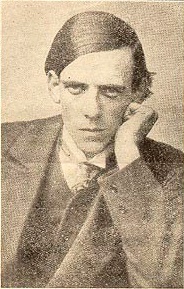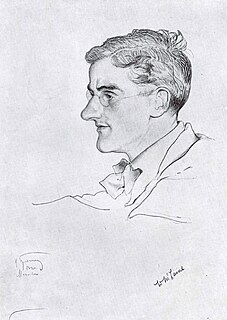Related Research Articles

John Maclean was a Scottish schoolteacher and revolutionary socialist of the Red Clydeside era.

James Maxton was a British left-wing politician, and leader of the Independent Labour Party. He was a pacifist who opposed both world wars. A prominent proponent of Home Rule for Scotland, he is remembered as one of the leading figures of the Red Clydeside era. He broke with Ramsay MacDonald and the second minority Labour government, and became one of its most bitter critics. As the leader of the Independent Labour Party (ILP), he disaffiliated the ILP from the mainstream party in 1932. Afterwards, he became an independent dissident outside front-line politics.
Red Clydeside was the era of political radicalism in Glasgow, Scotland, and areas around the city, on the banks of the River Clyde, such as Clydebank, Greenock, Dumbarton and Paisley, from the 1910s until the early 1930s. Red Clydeside is a significant part of the history of the labour movement in Britain as a whole, and Scotland in particular.

Duart Castle, or Caisteal Dhubhairt in Scottish Gaelic, is a castle on the Isle of Mull, off the west coast of Scotland, within the council area of Argyll and Bute. The castle dates back to the 13th century and is the seat of Clan MacLean.

Clan MacLean is a Highlands Scottish clan. They are one of the oldest clans in the Highlands and owned large tracts of land in Argyll as well as the Inner Hebrides. Many early MacLeans became famous for their honour, strength and courage in battle. They were involved in clan skirmishes with the Mackinnons, Camerons, MacDonalds and Campbells, as well as all of the Jacobite risings.

Arthur MacManus (1889–1927) was a Scottish trade unionist and communist politician.

The Clyde Workers Committee was formed to campaign against the Munitions Act. It was originally called the Labour Withholding Committee. The leader of the CWC was Willie Gallacher, who was jailed under the Defence of the Realm Act 1914 together with John Muir for an article in the CWC journal The Worker criticising the First World War.

Carter-Campbell of Possil is a branch of Clan Campbell, a Scottish clan. Historically, they are part of Clan Campbell, which was regarded as one of the largest Scottish clans. The branch of the Campbell clan was historically centred in Lawers. Some of the clan, which originated with the original Campbells, had links to the lands of Argyll.

The 2011 Scottish Labour Party leadership election was an internal party election to choose a new leader of the Scottish Labour Party. The election followed the announcement by Iain Gray that he would stand down as leader in the autumn of 2011 following the party's heavy defeat to the Scottish National Party in May's Scottish Parliament general election. Gray won the previous contest in September 2008.
Events from the year 1954 in Scotland.
Events from the year 1919 in Scotland.
Events from the year 1914 in Scotland.
Events from the year 1908 in Scotland.
Events from the year 1879 in Scotland.

Mary (May) Pollock Grant also known as Marion Pollock, was a Scottish suffragette, Liberal Party politician, missionary and policewoman.
Mary Brooksbank was a Scottish mill worker, socialist, trade unionist and songwriter. She was an active member of the Communist Party of Great Britain between 1920 and 1933, and spent three periods in prison as a result of her agitation. She attended John Maclean's last meetings at the Scottish Labour College.
James Dunlop MacDougall, also known as James McDougall, was a Scottish political activist, best known as John Maclean's leading supporter.
Mary Burns Laird was a founding member and first President of the Glasgow Women's Housing Association, a President of the Partick Branch of the Women's Labour League, associated with the Red Clydeside movement, and supported the Glasgow Rent Strikes of 1915 alongside Mary Barbour, Agnes Dollan, Mary Jeff and Helen Crawfurd. Laird went on to participate in wider social activism for women and children's rights.

William McLaine (1891–1960) was an engineer, Marxist and trade union activist.
The John MacLean March is a Scottish song written by Hamish Henderson in 1948. It eulogises the socialist organiser John Maclean, describing his funeral procession through Glasgow in 1923.
References
- ↑ "Red Clydeside: Scottish Labour College". archive.is. Archived from the original on 2013-03-23. Retrieved 2014-05-31.CS1 maint: BOT: original-url status unknown (link)
- ↑ Millar, J. P. M. (1979). The Labour College Movement. London: N.C.L.C. Publishing Society Ltd.
- ↑ Smith, Graham (23 September 2004). "Brooksbank [née Soutar], Mary Watson (1897–1978), revolutionary and songwriter" . Retrieved 27 December 2020.
| This article relating to education in Scotland is a stub. You can help Wikipedia by expanding it. |